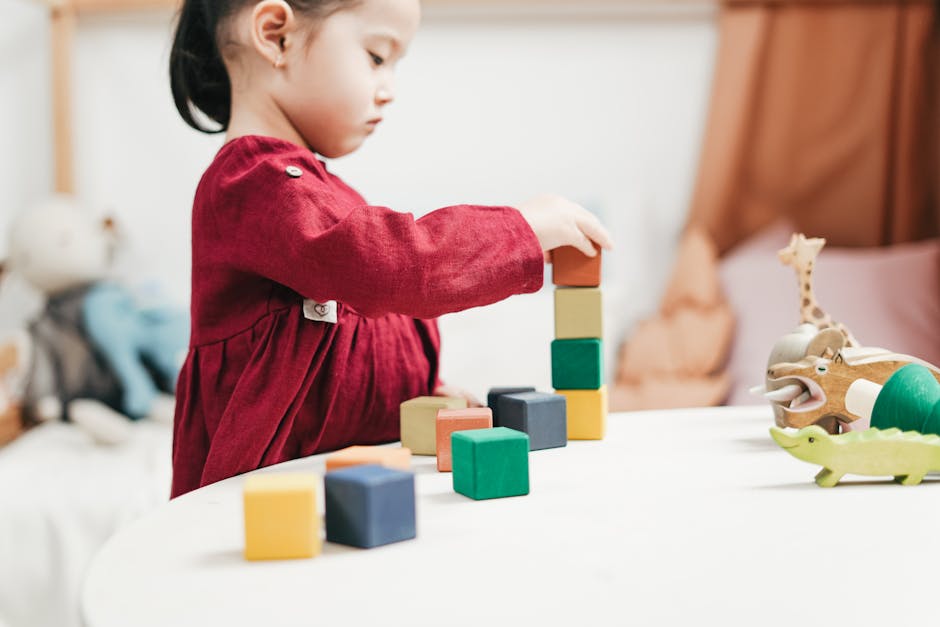Children’s lives are a tapestry woven with threads of learning, growth, and exploration. Central to this intricate design is play, often overlooked yet profoundly influential in shaping the future adults they will become. Far from frivolous activity, play acts as a catalyst for multifaceted development, fostering crucial skills that underpin their physical, cognitive, social, and emotional well-being. This exploration delves into the multifaceted importance of play in a child’s journey.
Play, in its myriad forms, is not just a pastime; it is a fundamental aspect of childhood. From the exuberant squeals of a toddler building a tower of blocks to the focused strategizing during a board game, play offers a unique avenue for learning and growth. A crucial aspect of this learning is the engagement with the world around them. This engagement is not just passive observation but an active exploration, questioning, and problem-solving. These interactions, particularly in imaginative play, allow children to develop and refine their thinking, creativity, and understanding of the world. It equips them with the tools necessary to face future challenges.
A significant contribution of play lies in its impact on a child’s cognitive development. Imaginative play, for instance, fosters creativity and problem-solving abilities. A child pretending to be a doctor, building a spaceship, or cooking a meal in a play kitchen is engaged in mental activities that involve planning, creativity, and role-taking. These acts encourage innovative thought processes and the construction of logical connections. Further, play involving rules and competition whether in team sports or board games develops critical thinking, strategy, and understanding of societal norms. These experiences teach children how to adhere to rules, manage expectations, and accept outcomes, no matter the result. These skills are invaluable in their academic endeavors and in future interactions with the world.
Physical development is intrinsically intertwined with play. Active play, like running, jumping, climbing, and swinging, enhances gross motor skills. Fine motor skills, involving smaller movements, are similarly refined through activities such as drawing, building with blocks, and manipulating puzzles. These skills, vital for everyday tasks, are strengthened through engaging, age-appropriate play. Developing these skills also contributes to improved coordination, balance, and overall physical health. The importance of physical activity in childhood cannot be overstated, setting a foundation for lifelong healthy habits.
Furthermore, play is a powerful tool for social-emotional development. Interacting with peers during play fosters valuable social skills, such as cooperation, communication, and conflict resolution. Children learn to share, take turns, and negotiate within the context of play. Through these interactions, they develop empathy, understanding the perspectives of others and navigating social dynamics. Games that involve team work or collaborative play provide excellent opportunities to learn these vital lessons. Playtime also provides spaces for emotional expression. Children can safely explore emotions, like frustration, disappointment, and joy, through play, without fear of judgment. These experiences aid in the development of emotional regulation, vital for their emotional well-being throughout life.
An interesting perspective emerges from studying the role of play in developing self-esteem. Opportunities to succeed and overcome challenges within a play setting empower children. Whether it’s mastering a new skill or successfully completing a collaborative project, these successes boost a child’s self-confidence and sense of accomplishment. This positive reinforcement, cultivated through playful engagement, strengthens their belief in their abilities, impacting their sense of self-worth. It’s not just about winning; it’s about the experience of participation, effort, and the joy of accomplishment.
Play also nurtures resilience. Children, encountering challenges and setbacks within the framework of play, learn to adapt and persevere. These experiences equip them to navigate the difficulties they will inevitably face in future endeavors, whether academic or social. This adaptability and problem-solving aptitude, fostered in the safe environment of play, become crucial assets in life.
The significance of play extends far beyond the immediate realm of childhood. These early experiences shape the foundation for future learning, social interaction, and overall well-being. Parents play a vital role in fostering a playful environment. Creating opportunities for play, from simple games to more structured activities, are essential for a child’s holistic development. Supporting a child’s natural inclination to explore, experiment, and create is a fundamental aspect of parenting. By understanding the profound importance of play, parents can actively cultivate an environment conducive to their child’s growth, fostering their well-rounded development and setting them up for a fulfilling future.
Conclusion: A child’s playground is not just a place of fun; it’s a laboratory of learning, a haven of exploration, and a crucible of development. Recognising the vital role play plays in shaping a child’s future is paramount. By embracing play as an essential component of childhood, parents and caregivers can empower children to develop a lifelong love for learning, creativity, and personal growth.
